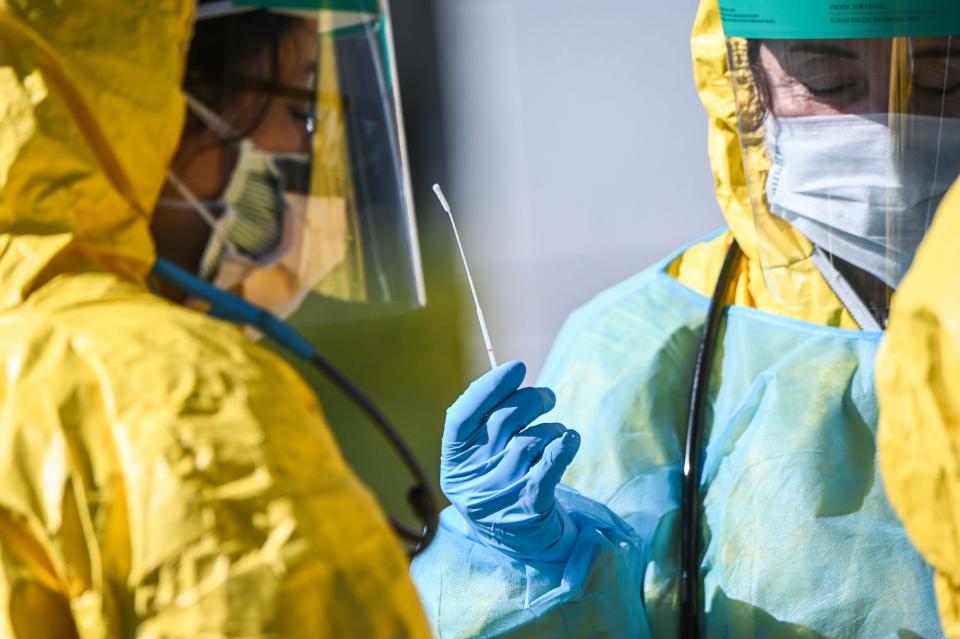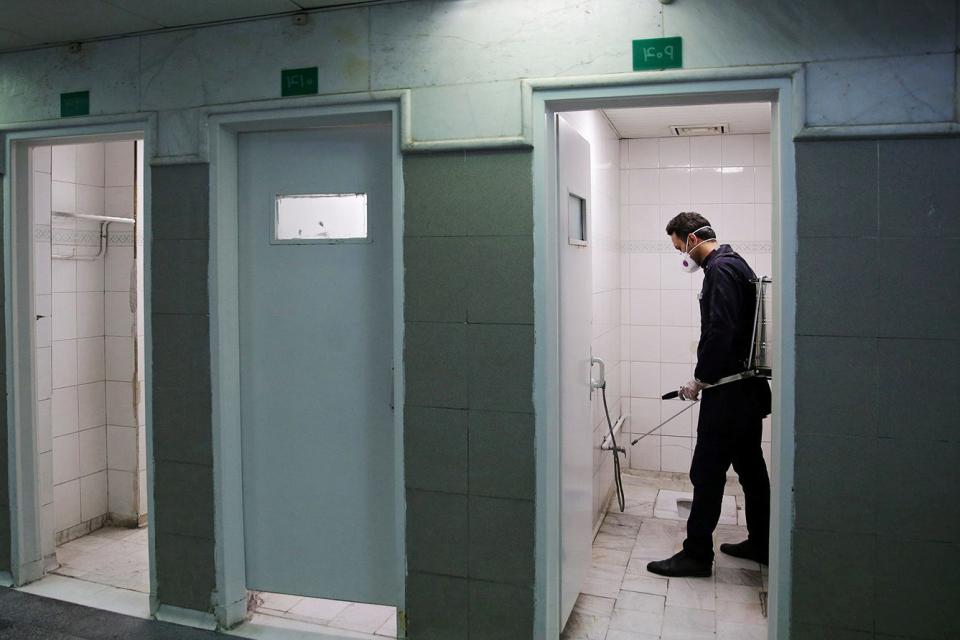A coronavirus patient's phlegm or poop could still have live virus in it even after they recover and test negative, new research suggests
The new coronavirus typically spreads via airborne particles from an infected patient's coughs or sneezes.
But some research suggests the virus can spread via fecal matter — studies have found traces of the virus in infected patients' poop.
A new study found that the virus lingers in recovered patients' phlegm and poop for weeks after diagnostic tests using swabs from their nose and throats came back negative.
This could mean doctors are discharging patients from the hospital who have tested negative for COVID-19 but are still shedding viral particles.
The coronavirus typically spreads via airborne particles: When an infected person coughs or sneezes, viral particles can land on someone else's nose or mouth or get inhaled, then infect the new host.
But a growing body of research also suggests the new coronavirus can spread via poop particles.
A new study published in the Annals of Internal Medicine suggests that even after samples from recovering coronavirus patients' noses and throats came back negative for the COVID-19 virus, the patients were still shedding the virus in their sputum (phlegm) and poop.
"These findings raise concern about whether patients with negative pharyngeal swabs are truly virus-free, or sampling of additional body sites is needed," the authors of the study wrote.
The problem is that the only means of diagnosing a coronavirus patient to date is a test that utilizes nose and throat swabs to scan for the virus' genetic code. Right now, two back-to-back pharyngeal tests that come back negative — from samples collected at least 24 hours apart — are part of the criteria that tells doctors whether to discharge recovered COVID-19 patients. But the new research raises doubts about whether that's conclusive enough.
Some patients tested negative for the coronavirus but had virus-laden poop and phlegm
The new study analyzed 133 COVID-19 patients admitted to Beijing Ditan Hospital in China between January 20 and February 27. From that group, the researchers identified 22 people who tested negative based on throat and nose swabs but had phlegm and poop that still tested positive for the coronavirus.
The researchers found that the sputum and feces from those patients still tested positive for the coronavirus up to 39 days and 13 days, respectively, after the patients' pharyngeal samples tested negative.
However, according to experts, some viral shedding after recovery is normal.
"It's been long know that, for many viral diseases, for a period of time after you recover you can still excrete some virus, but usually pretty low levels of it," William Schaffner, a professor of preventive medicine and infectious diseases at Vanderbilt Medical University, told Business Insider.
Just because a patient's phlegm and poop still have live coronavirus in them, that doesn't mean the viral particles can infect others.
"The question is whether that virus that sheds is actually culturable. Is it something that you could grow in a lab? Is it something that we think could actually transmit to someone?" Megan Coffee, an infectious disease clinician in New York City, told Business Insider.
"Sometimes viruses shed and it's simply the genetic material. It's not actually a virus that could actually infect someone," she added.
A cotton swab used in a nasal passage as healthcare professionals test for COVID-19 at the ProHEALTH testing site in Jericho, New York on March 24, 2020.

Nevertheless, the authors of the new study point out, diagnoses based on a patient's nose and throats swabs are pivotal in a doctor's decisions about whether to discharge them from a hospital and whether they need to continue self-isolating.
If a patient is still shedding the virus when they resume normal behavior, they might pose a risk to others.
The virus can spread through poop
Several studies have found virus particles in infected people's poop. A study of three coronavirus patients in Singapore revealed that the coronavirus showed up in their stool — samples taken from the toilet bowls and sinks in their rooms came back positive.
Researchers from the Chinese Center for Disease Control and Prevention also detected viable virus particles in coronavirus patients' feces.
But Schaffner said the presence of the virus in feces "is likely to play a very small role, if any, in its transmission in the US."
"I don't think it's going to be a problem here, where we literally flush the fecal material with the virus down the drain," he said.

WANA (West Asia News Agency) via Reuters
But Schaffner added that the lingering presence of viral particles in phlegm is more concerning.
"That may contribute to a small amount of transmission in hospital settings," he said, since that's where patients with severe cases are clustered close together and expelling phlegm.
Aria Bendix contributed reporting to this story.

